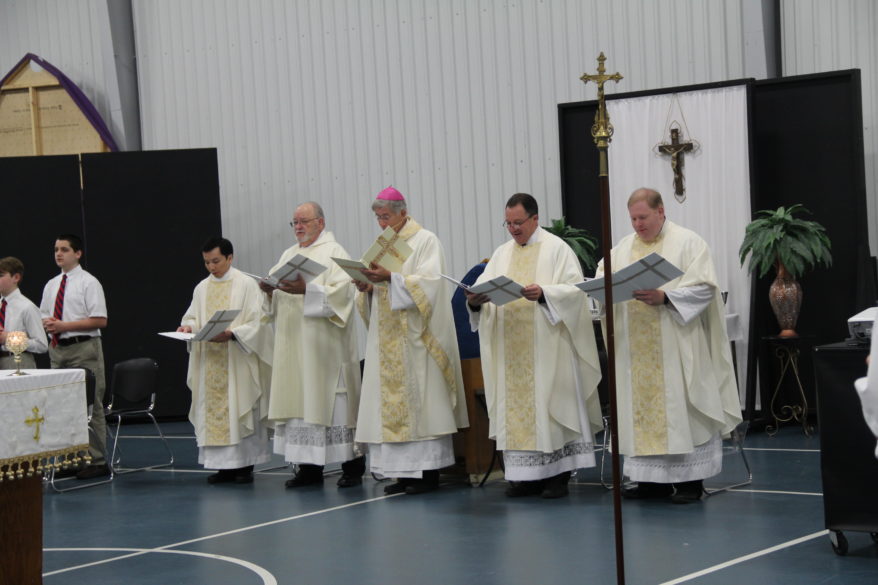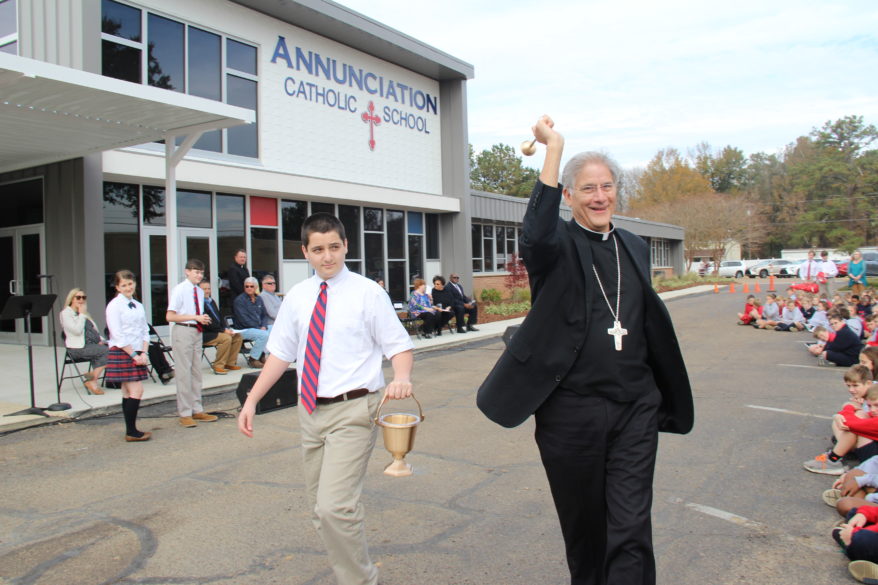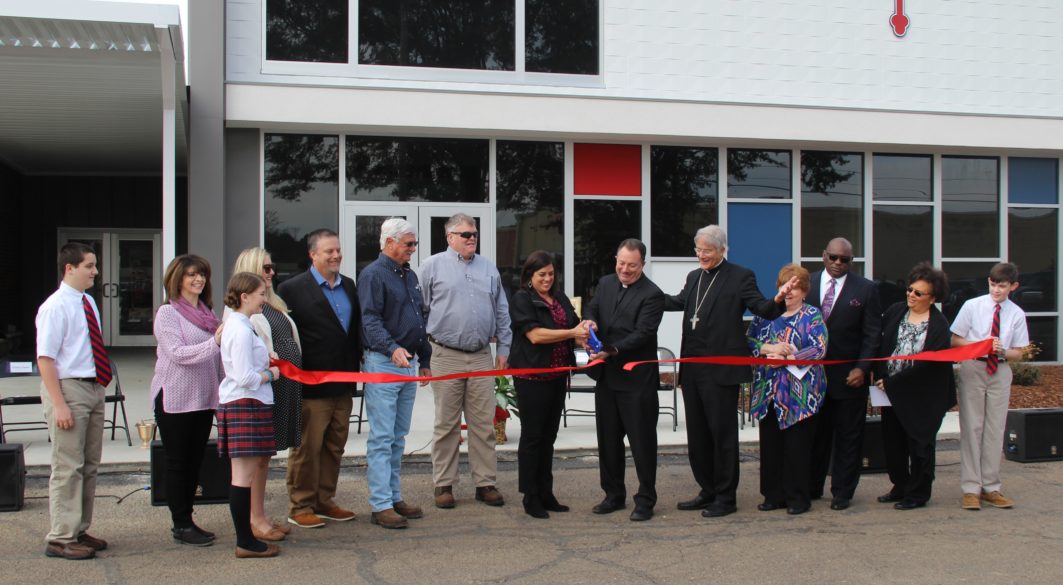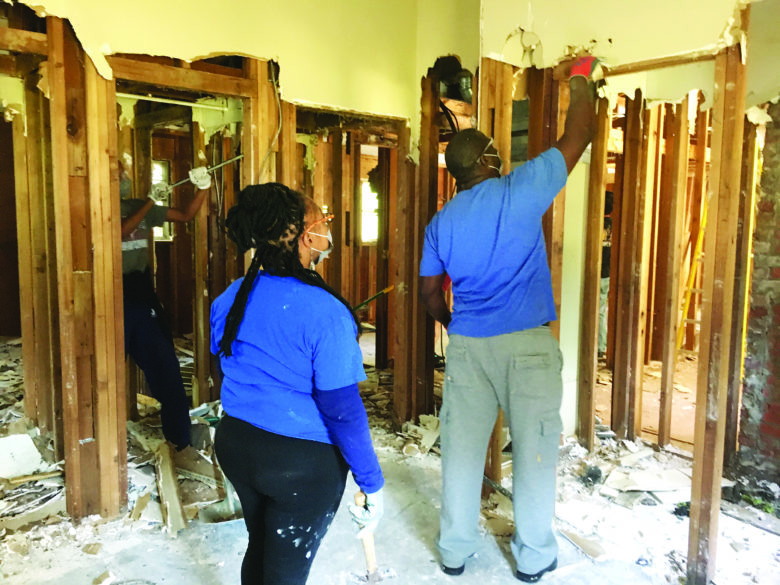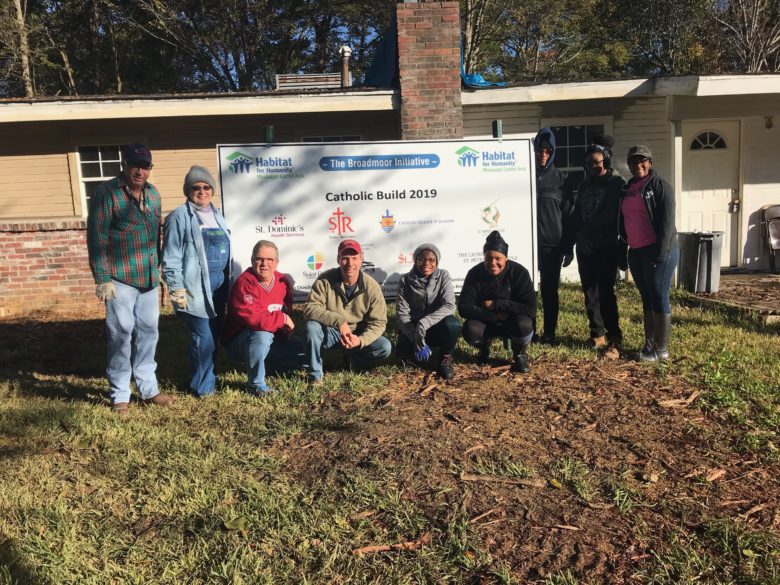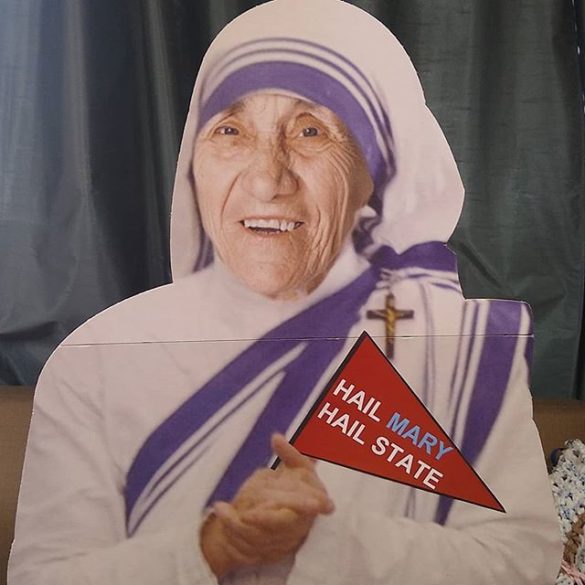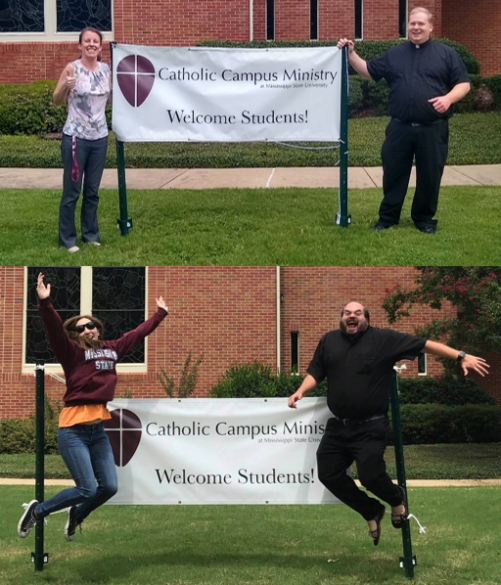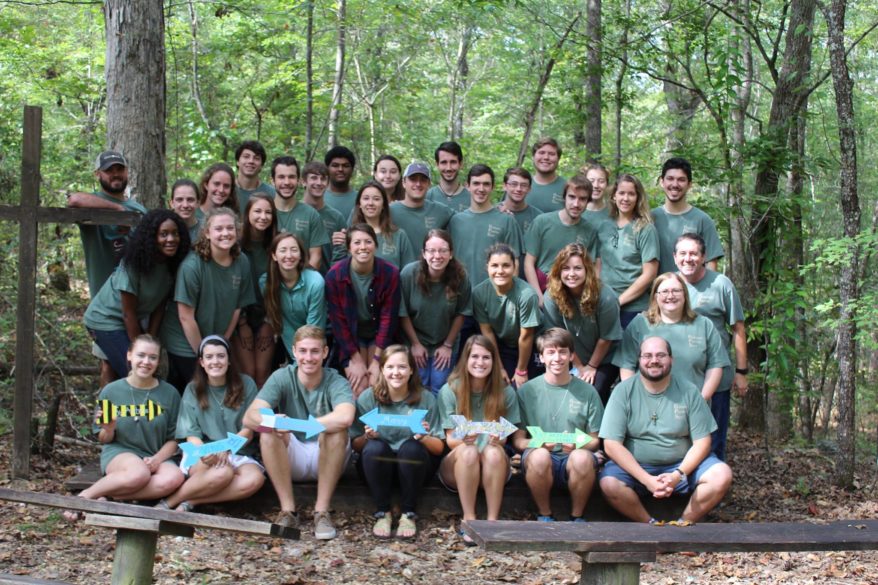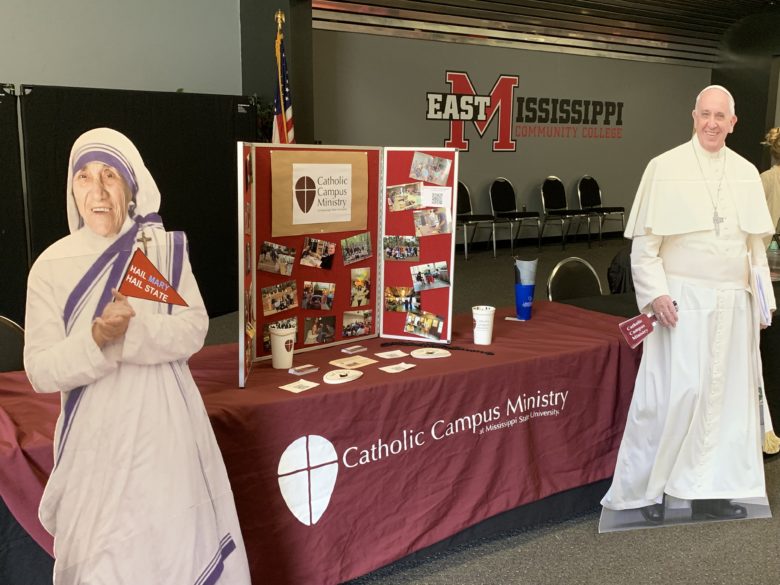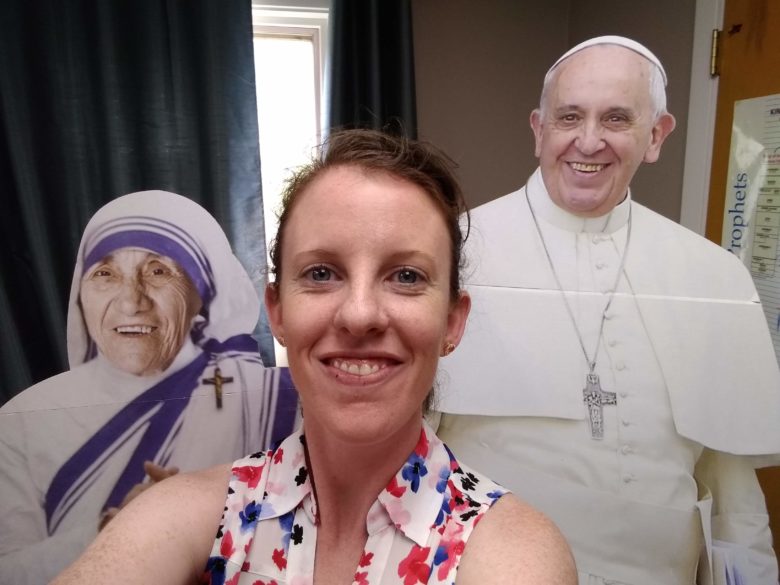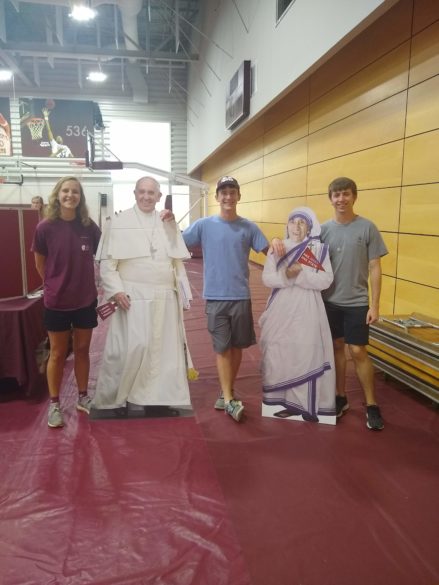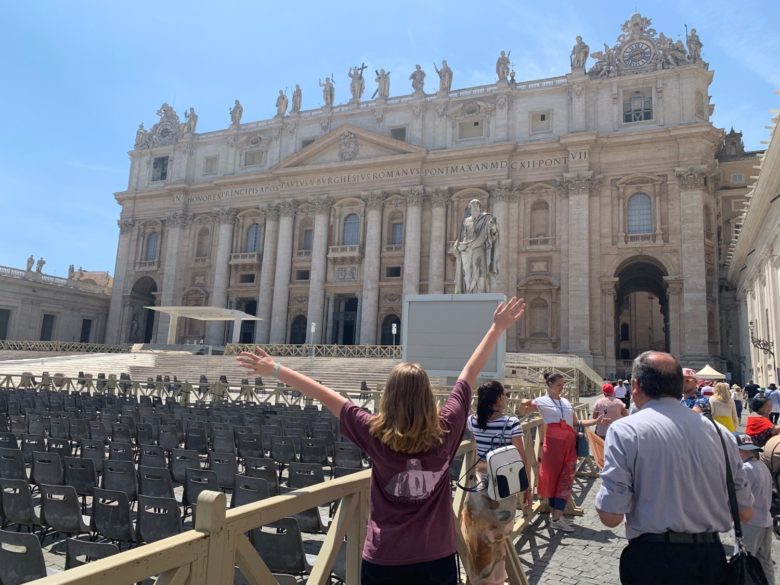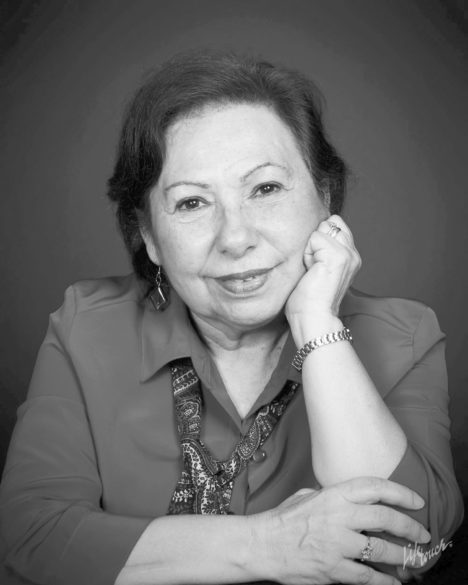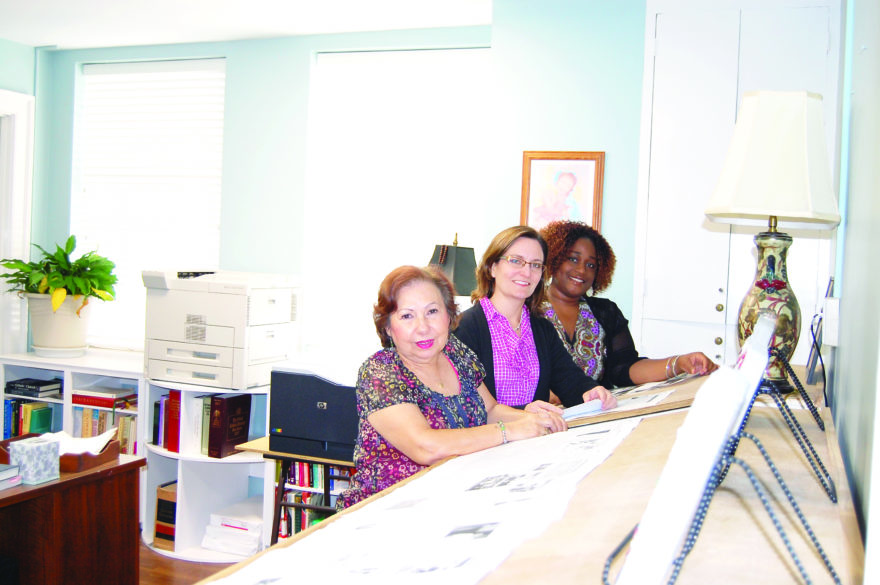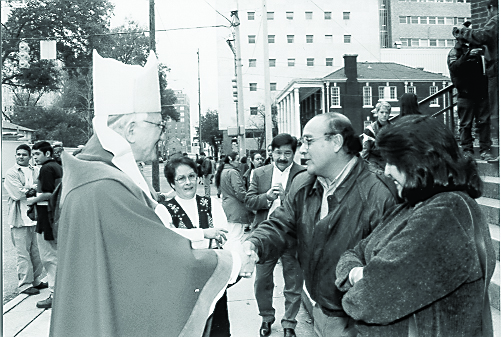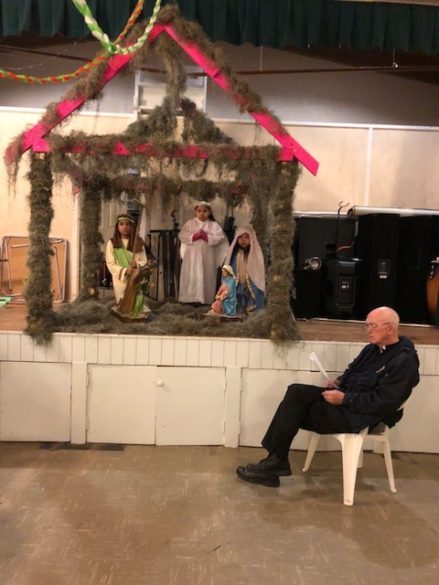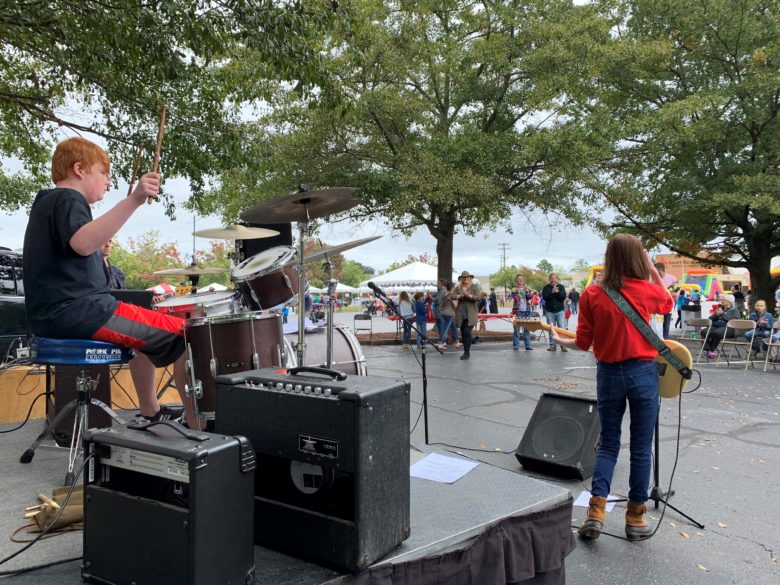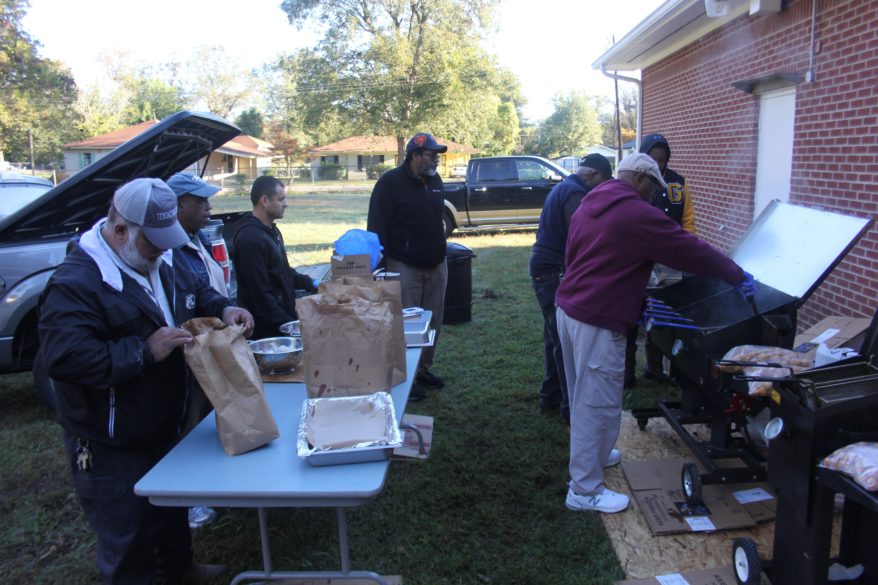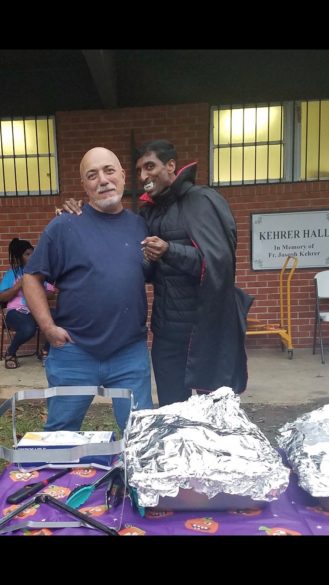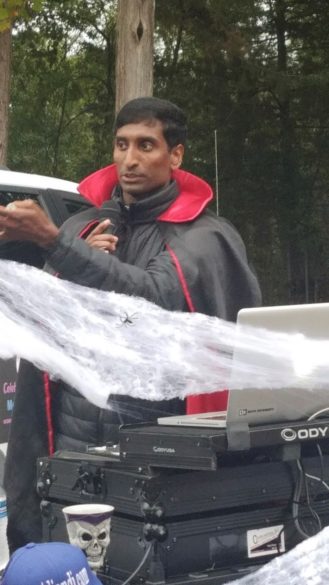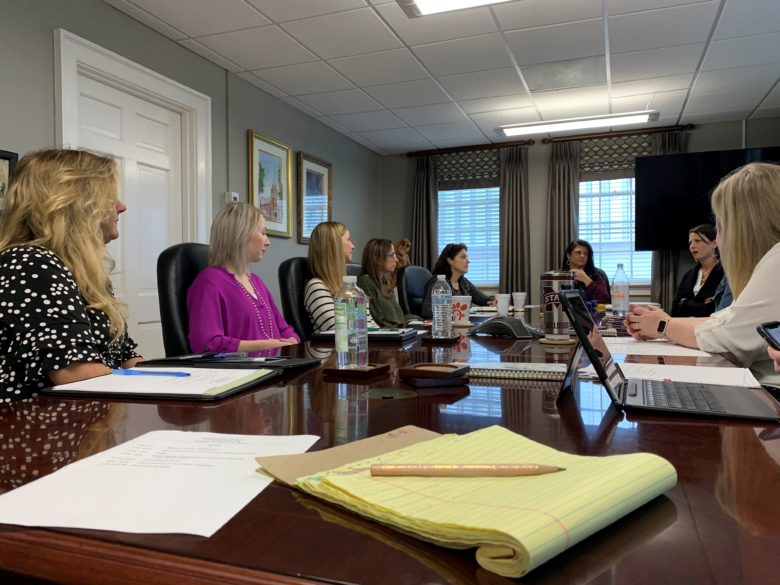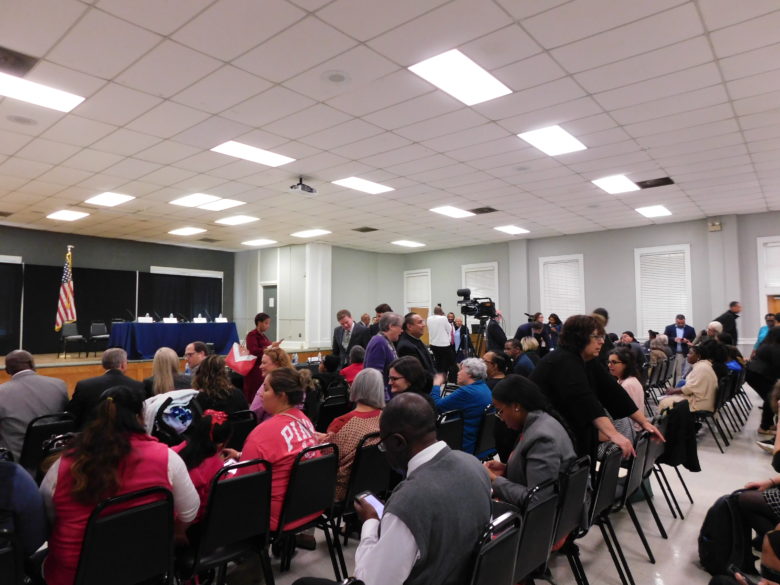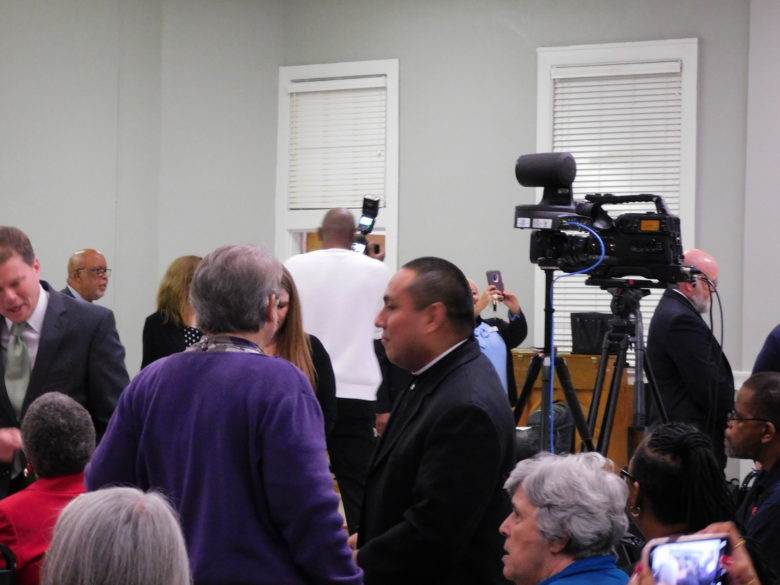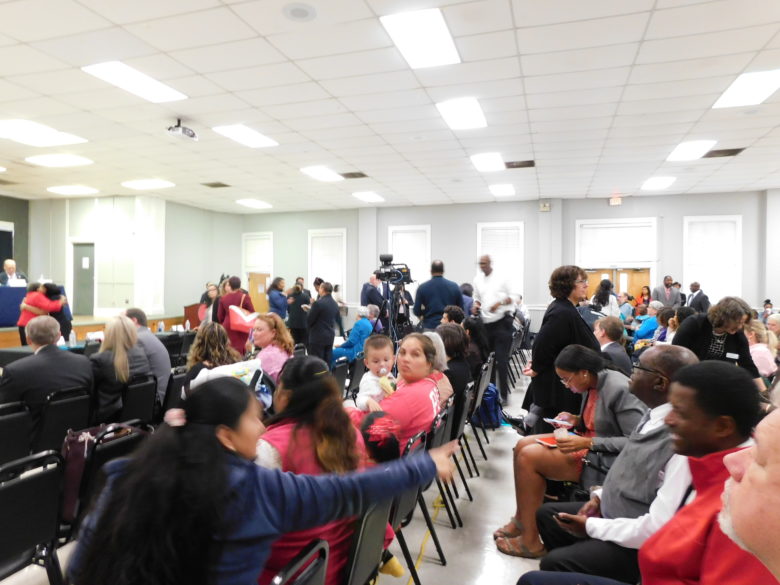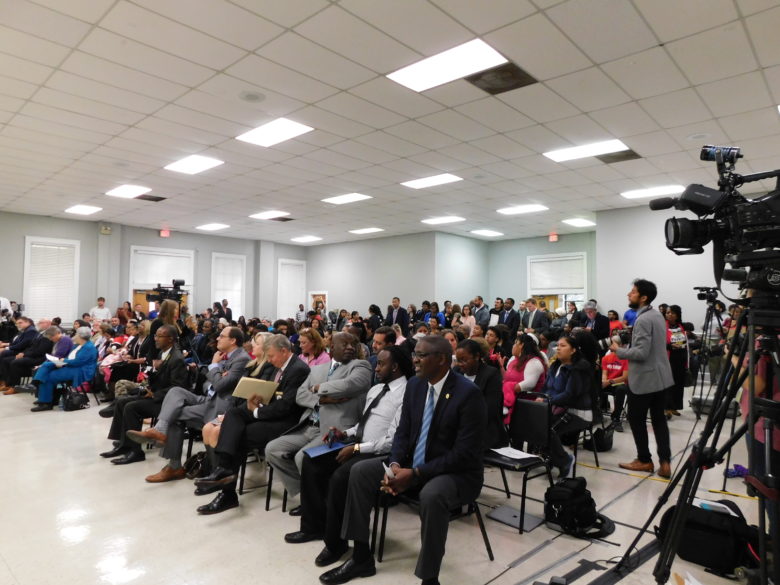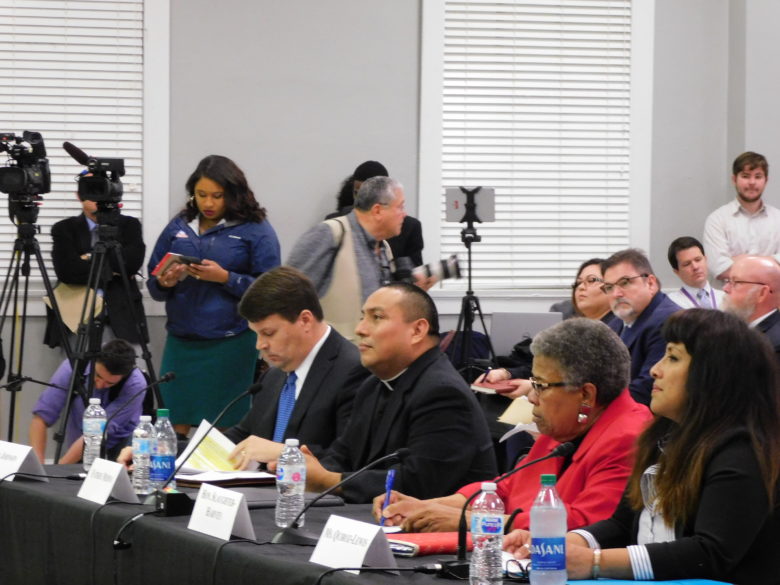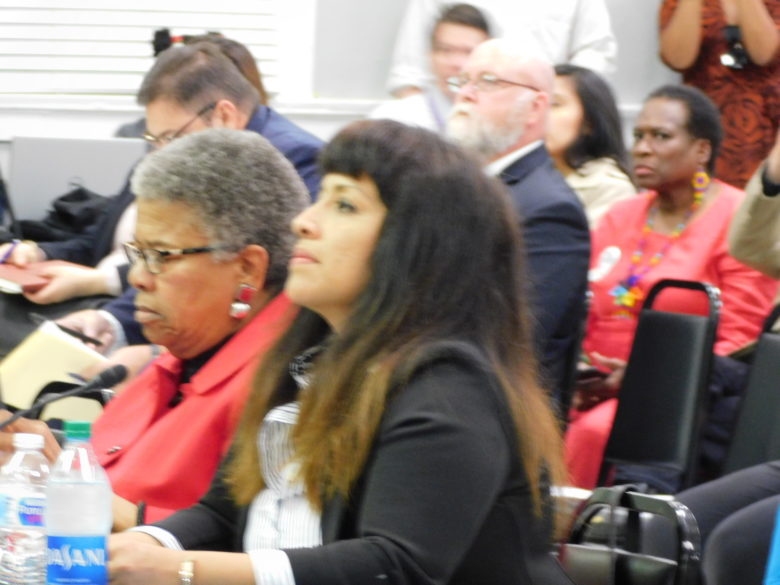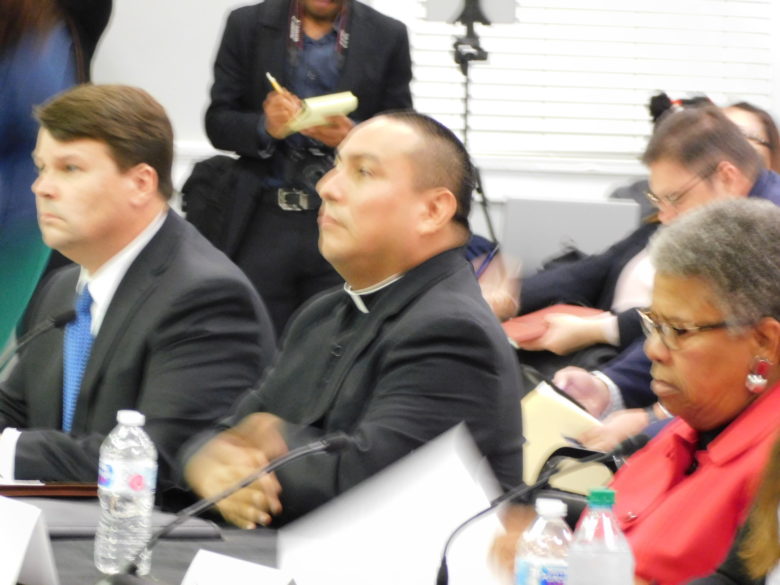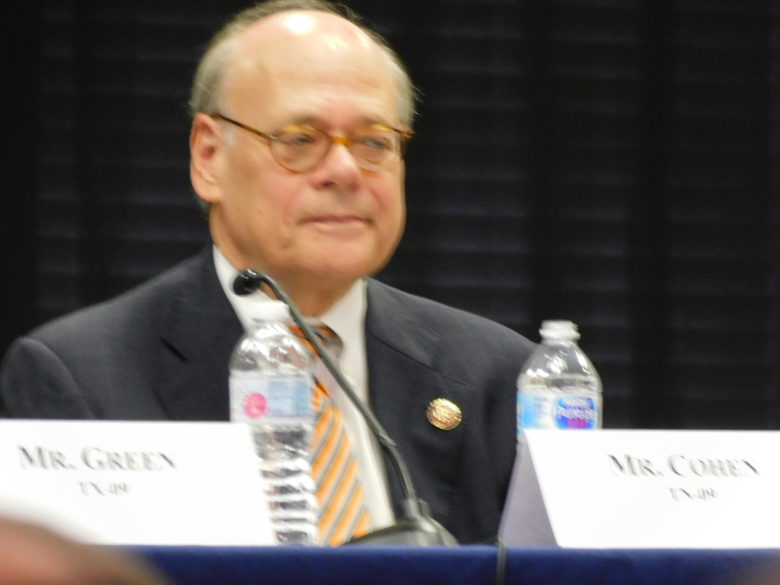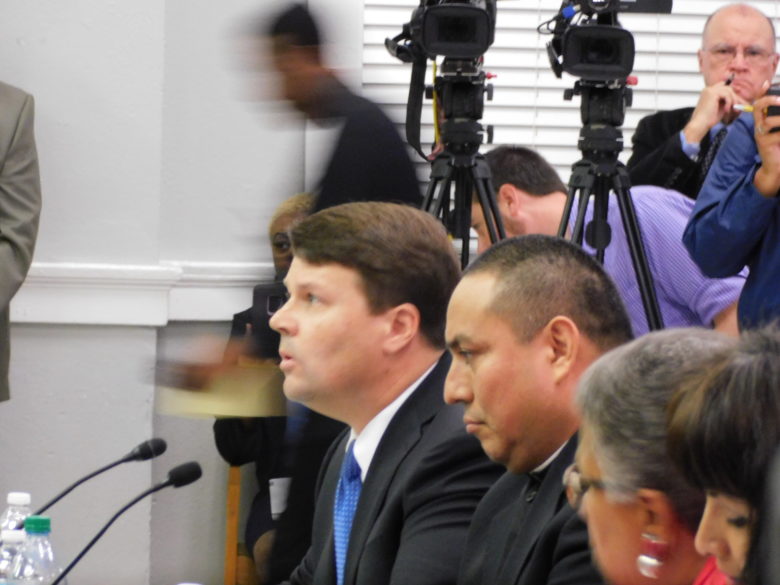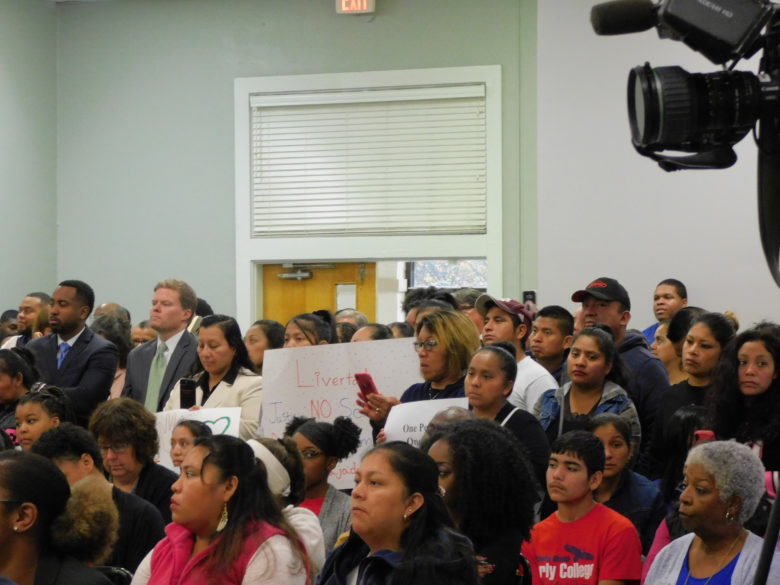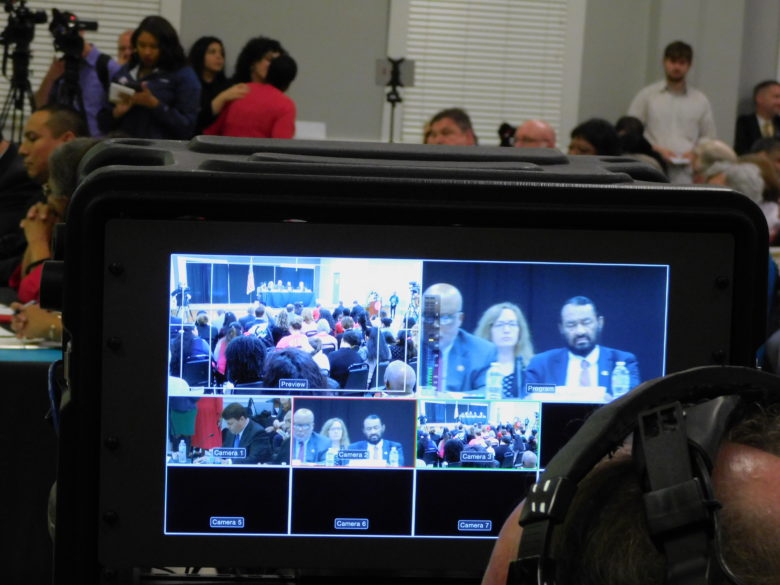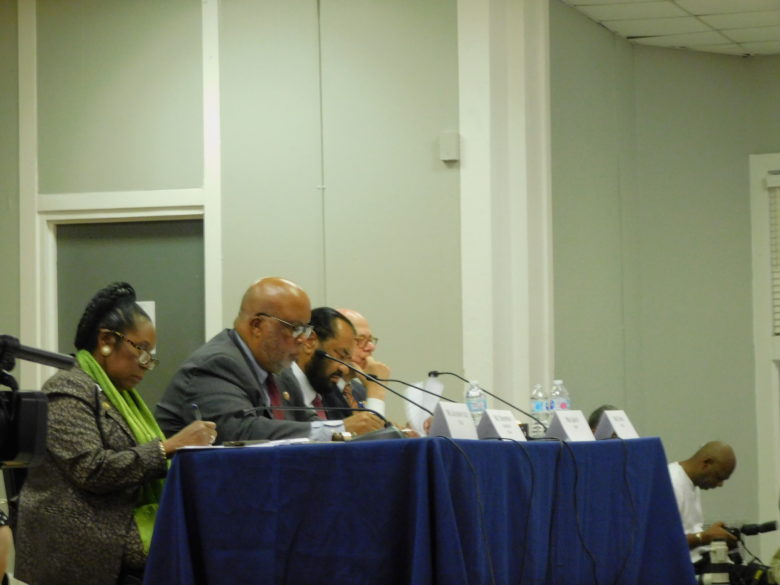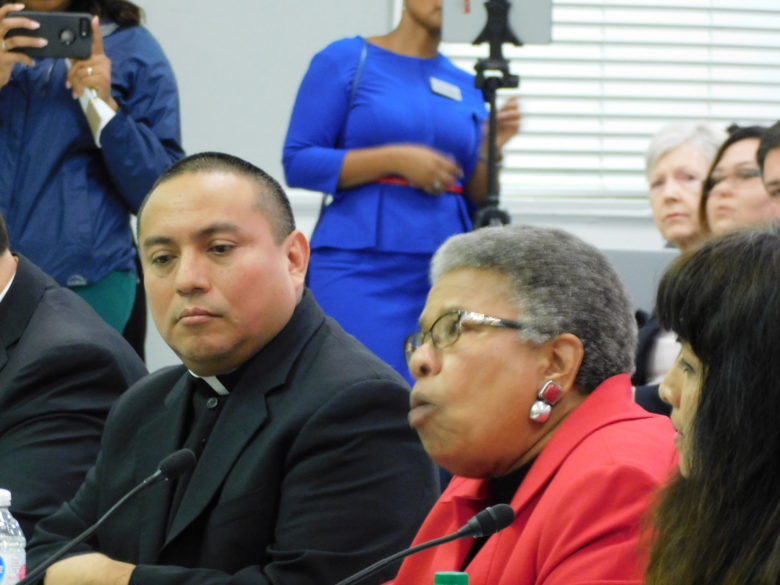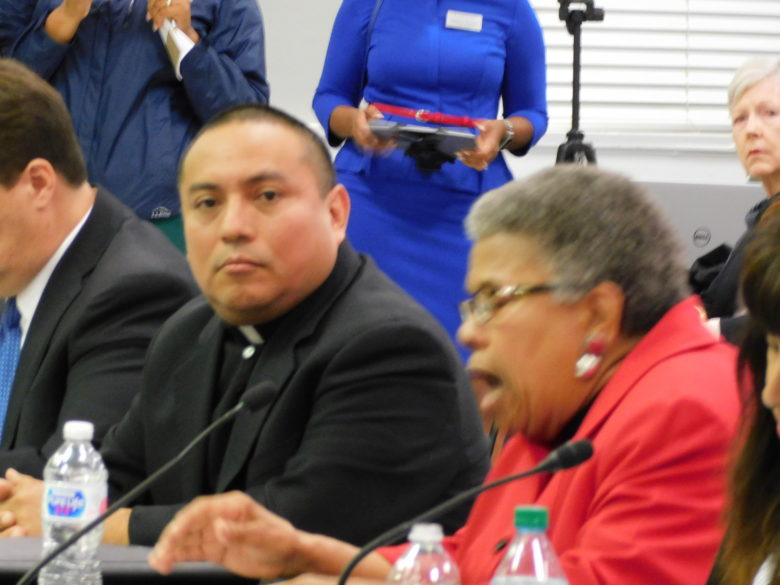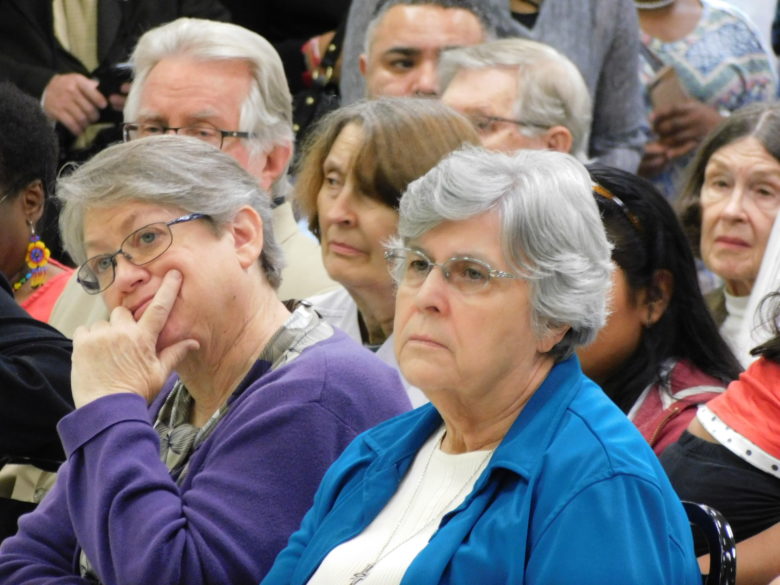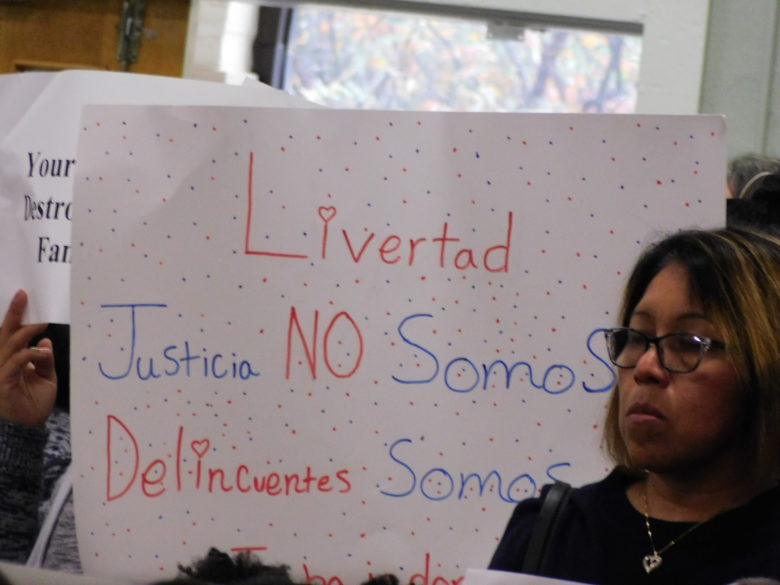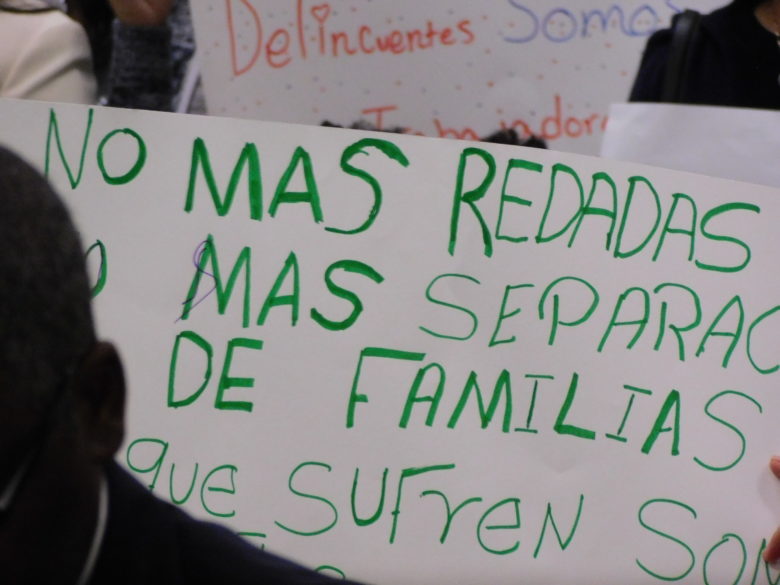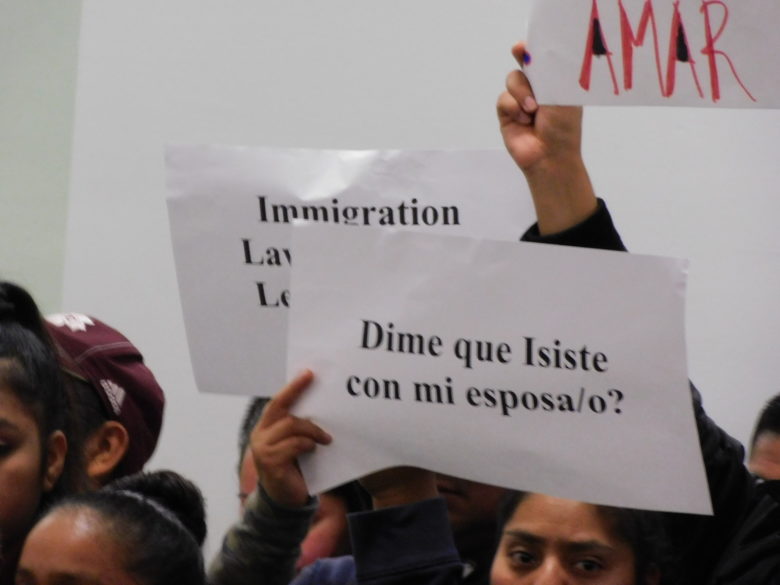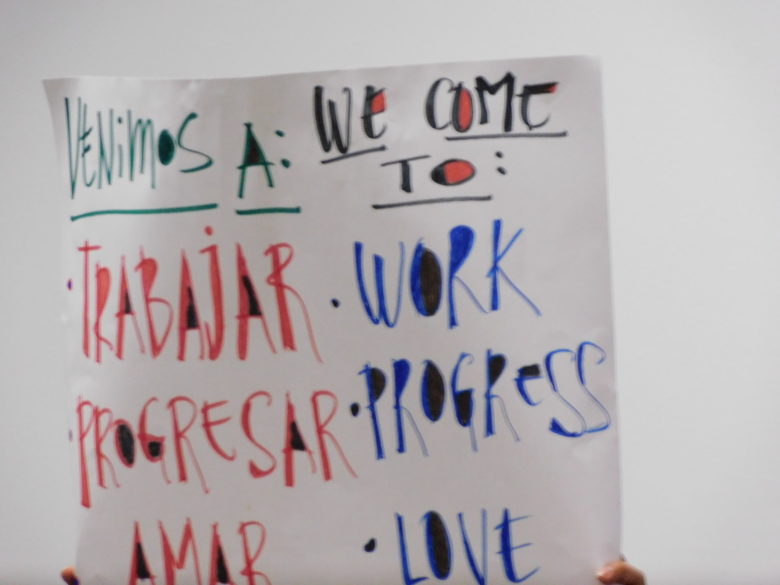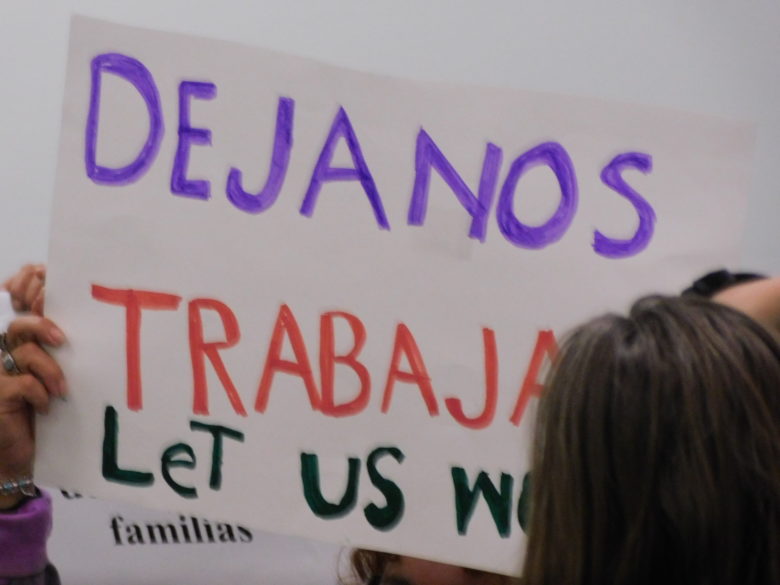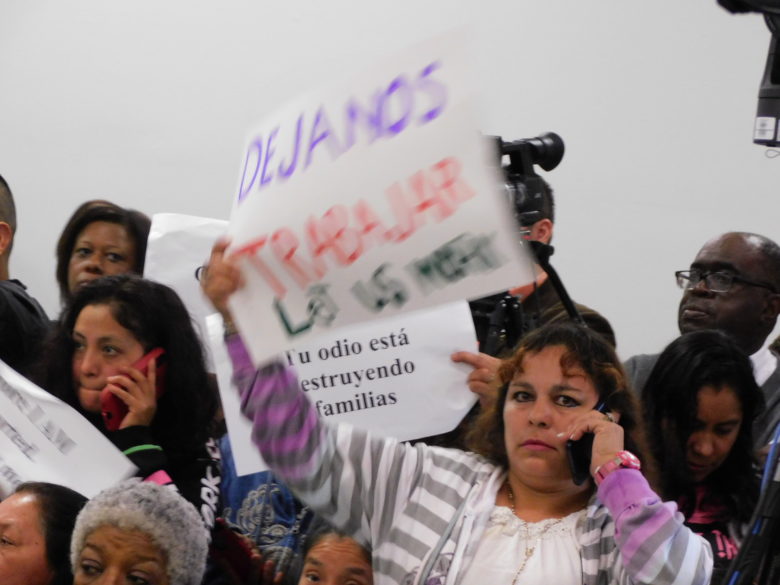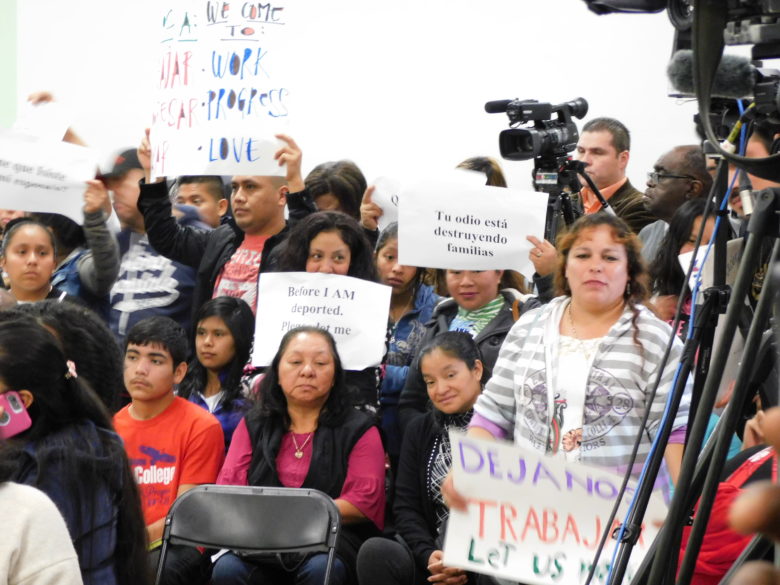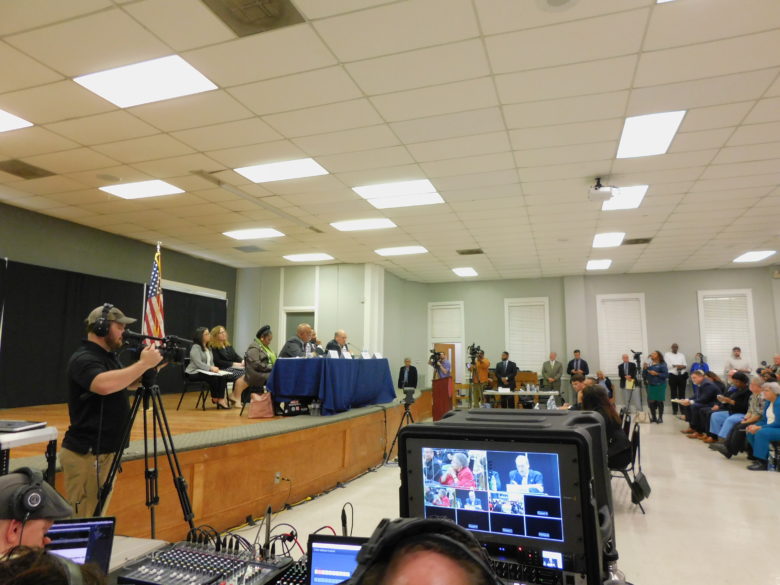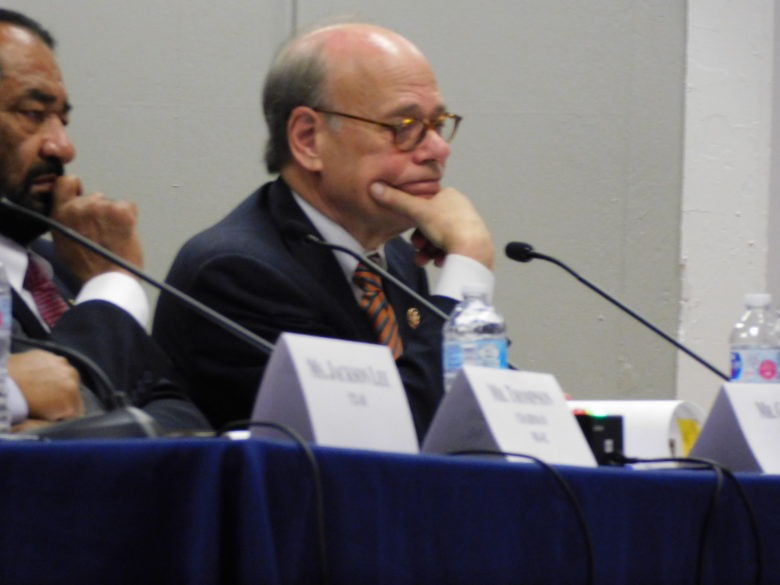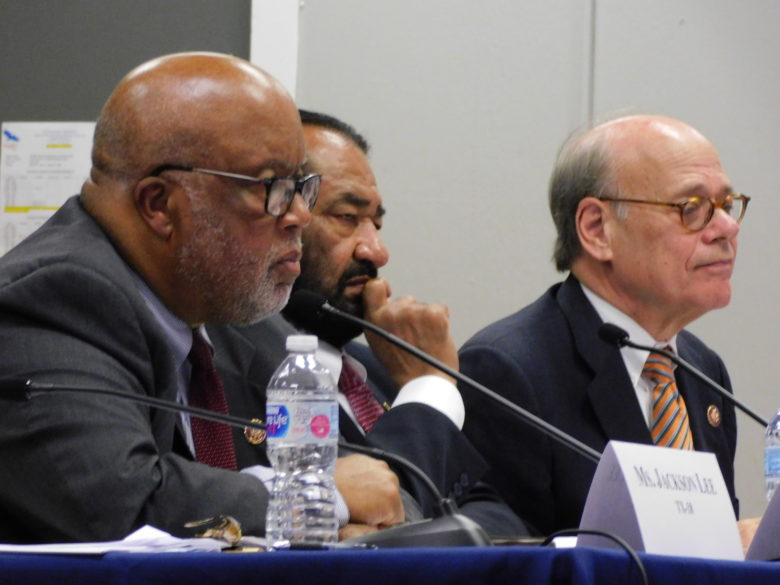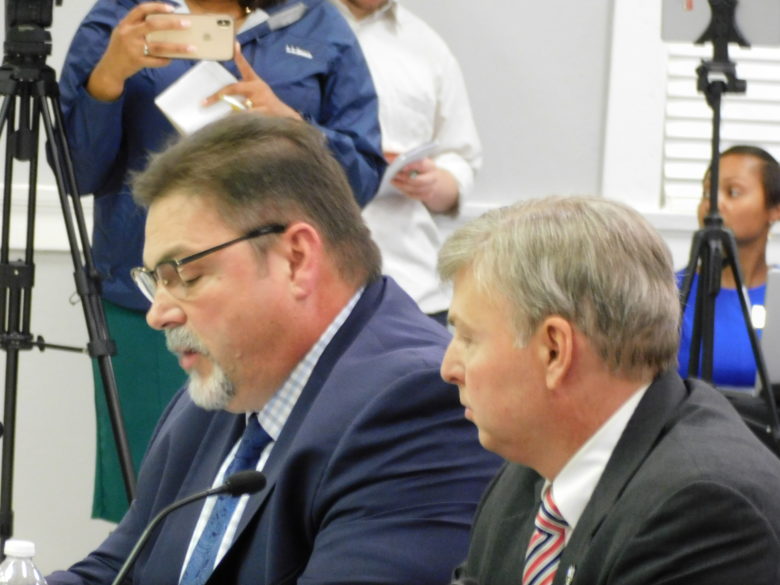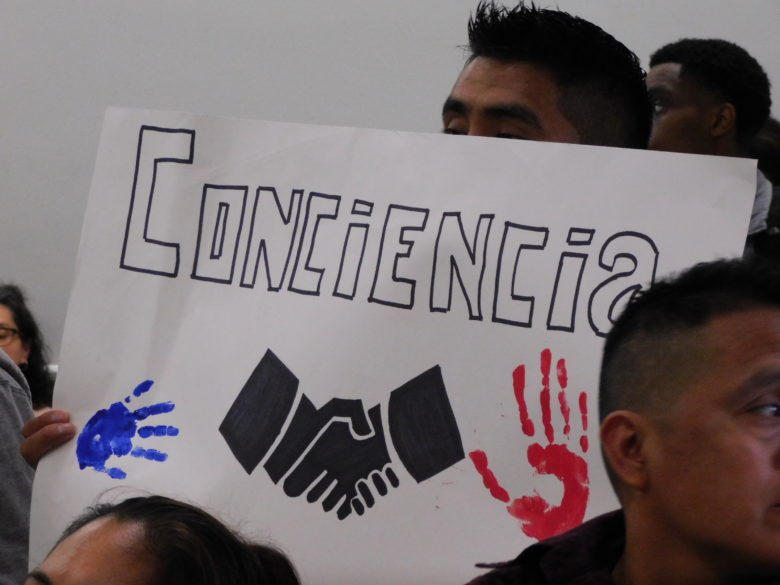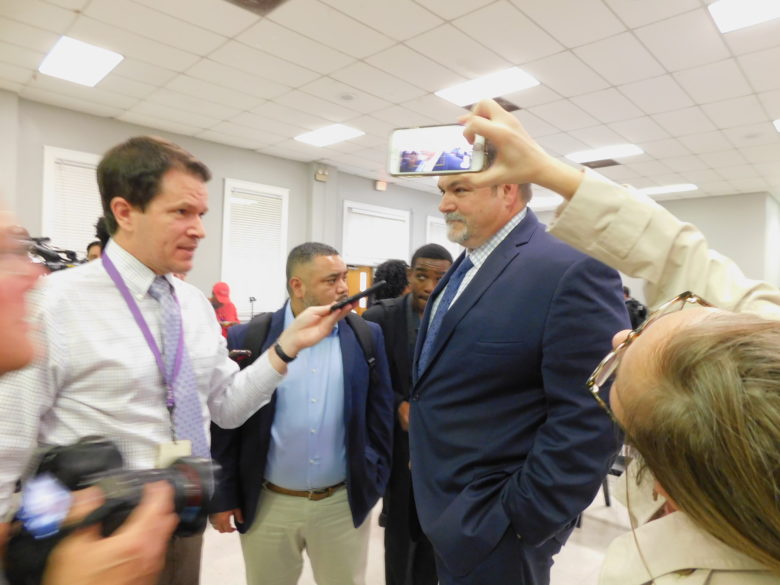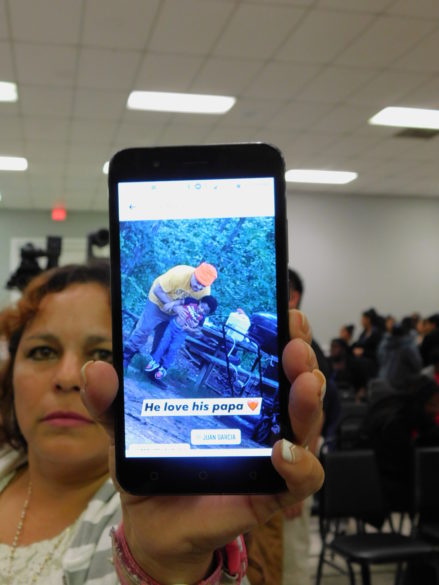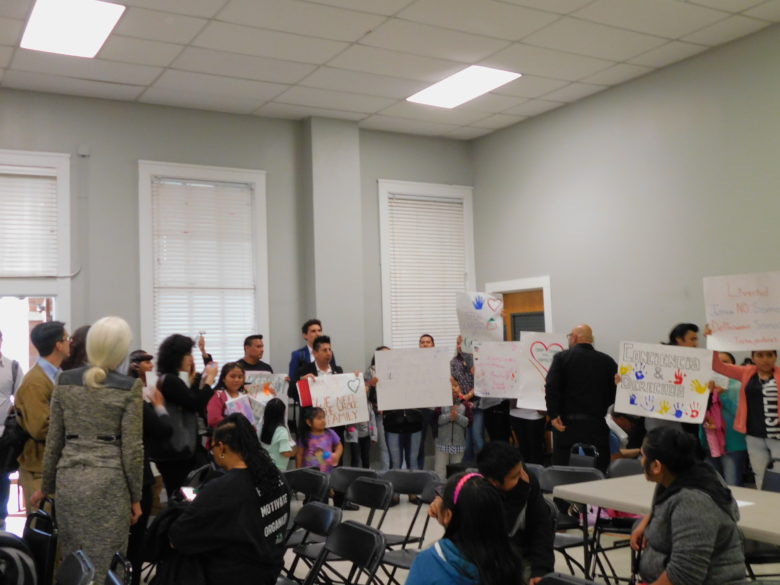By Katie Fenstermacher
COLUMBUS – Supporters of Annunciation school celebrated the institutions expansion on Thursday, Nov. 21 with a ribbon cutting ceremony and reception. Talks of expanding the campus have been ongoing for several years due to increasing enrollment every year. Annunciation Columbus enrollment has almost doubled in the last seven years and the school has seen a 97% increase in that time. After much discussion and research, school administration decided the best plan of action financially would be to build on the current location.
Annunciation began a capital campaign last spring to raise the $3 million needed to move forward with an expansion. The new expansion includes six new classrooms, a computer/STREAM lab, science lab, library and administrative offices. The front of the school also received a revamp. During the ceremony, representatives from each committee that worked on the expansion were present, as well as Bishop Joseph Kopacz and Catherine Cook, Superintendent, to cut the ribbon on this exciting new venture.
Principal, Joni House stated, “The construction of this new building is more than just walls and ceilings, it is the opportunity to continue our mission of higher learning in a Christ-centered environment. It gives us the opportunity to accept additional students each year and offer a more STREAM focused curriculum.”
“What an honor it is to work along so many others who have sacrificed personally and financially to provide an ever-expanding learning environment for our Annunciation Catholic School students and faculty. As we continue our school’s mission of building character, fostering community and creating lifelong learners, we can’t help but remember those sacrifices of so many in our school’s history. They formed the foundation that we have the privilege to be building on. The new opportunities that will be afforded our students and faculty is absolutely amazing, What a challenge and opportunity,“ said Father Jeffrey Waldrep, pastor of Annunciation school and church.
For more information, or to schedule a private school tour, please contact (662) 328-4479 or visit www.AnnunciationCatholicSchool.org.

